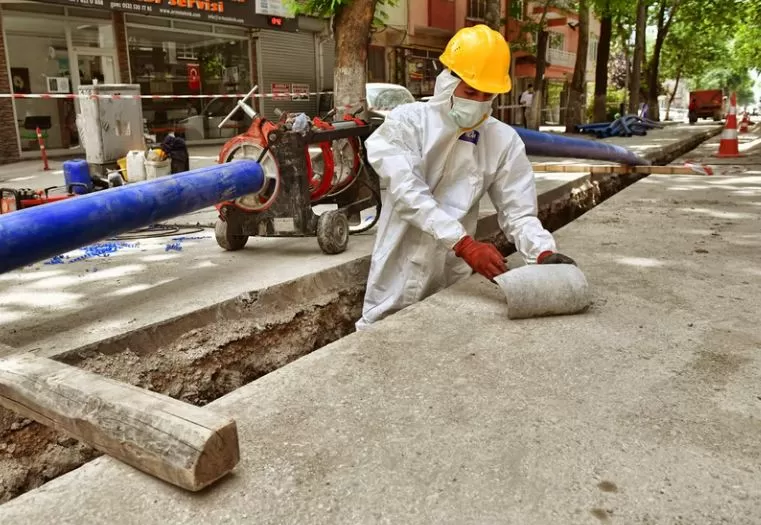Things That You Need to Do When Exposed to Asbestos
Asbestos is considered dangerous only if the fibers are released into the air, where they can be inhaled or ingested. There are asbestos minerals that release fibers easily, while others do so upon long exposure to heat and pressure.
Asbestos is not something that you should play around with; it can be fatal if inhaled or ingested. When asbestos particles are in the air, they get attached to your hair and clothes. Exposure to asbestos can lead to a multitude of health problems, some fatal. Possible diseases that you might suffer from include malignant mesothelioma, lung cancer, and asbestosis. To prevent diseases like lung cancer, mesothelioma, and asbestosis, proper measures must be taken after possible exposure. Highlighted are things you need to do when exposed to asbestos.
Consult A Doctor
When you are exposed to asbestos, the first thing that you need to do is to consult a doctor. It is of utmost importance to get help if you have inhaled breathing of asbestos fibers or if your skin had come in contact with it on any part of your body. The help that you will get through consulting a professional will help you find out whether there is something serious with your health. It is good to get yourself checked on, even if you are feeling absolutely fine. The doctor will just take some blood samples and even ask you to go for an X-ray. These are mostly done to rule out the chances of mesothelioma or any other kinds of lung infections or damage that may have occurred due to being exposed to asbestos. Once the doctor is sure that there are no major health hazards, he will advise you to go on with your daily activities.
Consult An Attorney
When you are exposed to asbestos, the first thing that you should do is seek help. This help should be sought immediately and not after a long wait as the longer you delay help the more it will cost you as there is increasing damage to your lungs with each day passed. There are many warning signs to look for when you have been exposed to asbestos. These signs include fatigue, a persistent dry cough, and shortness of breath. Make sure that you don’t ignore these symptoms, as help is always available for those who seek it early enough. Asbestos is a legal issue and, therefore, you should seek help from an attorney or any agency that solicits help for mesothelioma victims. An attorney will help you protect your rights and make sure that strict laws and regulations on asbestos exposure and disposal are adhered to.
Research Treatment Options
When exposed to asbestos, it is very important that you seek medical attention and ask for a physician’s opinion on what treatment plan will be best. Asbestos has been linked to serious conditions such as mesothelioma and lung cancer. Mesothelioma is lung cancer caused by asbestos exposure. Asbestos becomes hazardous when the microscopic fibers are inhaled, carried into the lungs, and cause cellular changes that can lead to tumors. This type of cancer does not have a very good survival rate because it is usually fatal within one year after diagnosis. Do the research and learn about the different mesothelioma cancer treatments, so you can decide the best treatment plan for you.
Keep Track Of Your Daily Activities
This includes what you did, for how long, in which room of your house, with whom you were communicating at the time. All these details may be important to your doctors and legal representatives, especially if you get sick or develop health complications. You should also report about the health of any family members who have been in your house. It may sound too early, but it’s much better to be safe than sorry. If you have been exposed to asbestos in your job, don’t forget to keep a record of your daily activities there as well. Your daily activities will also help your doctors to estimate the level of asbestos exposure. For example, if you were cutting through an old boiler pipe that had white asbestos wrapped around it, and you spent hours with your face just a few centimeters away from it, then that’s most likely the reason why you cough up blood in the morning.
Review Your History
If there is a history of asbestosis, mesothelioma, or lung cancer with family members or co-workers, you’re at greater risk. Also, if you worked in a trade that put you near asbestos products or materials – such as construction, shipyards, railroads, power plants, and the oil industry – you’re also at increased risk. In addition, people who have been exposed to radiation are at greater risk of developing asbestos-related cancer. If you feel like there is a risk of health problems, make an appointment with your doctor.
Let them know specifically what you think your exposure was to asbestos, and they can suggest the appropriate testing that may need to be done. The most common tests include chest X-ray and CT scans and lung function tests (Spirometry). Your doctor may also order blood and urine tests to determine how healthy you are. Your doctor may recommend other tests based on other existing health conditions and if they suspect other cancers as a result of your exposure to asbestos.
Even If It’s Just A Little Exposure, Better Wear Disposable Coveralls Or Full bodysuits
You Can prevent asbestos fibers from entering your respiratory system by wearing protective gear. Cover yourself with disposable coveralls or full bodysuits: Asbestos fibers are so small that they can easily get into the air and be carried deep within your lung, where they will get trapped in the lung lining, causing serious problems years later. Wearing disposable coveralls or a full bodysuit can help capture asbestos fibers. Also, avoid skin contact with any asbestos fibers that may be on surfaces, and in cases where heavy or prolonged exposure to asbestos is expected, wear gloves and boots.
The outcome of asbestos exposure can be extremely serious and may lead to asbestosis, mesothelioma, or lung cancer. Although there is no cure for these conditions, you can take some simple measures to reduce your chances of getting sick. You can also minimize the risk of developing mesothelioma by keeping track of your daily activities, reviewing your history, and wearing disposable coveralls or full bodysuits. It’s better to be safe than sorry.










